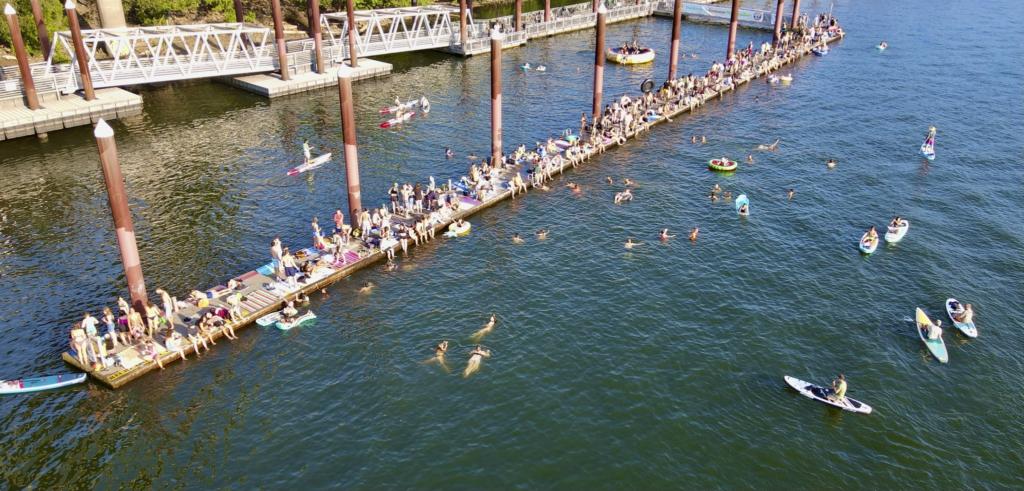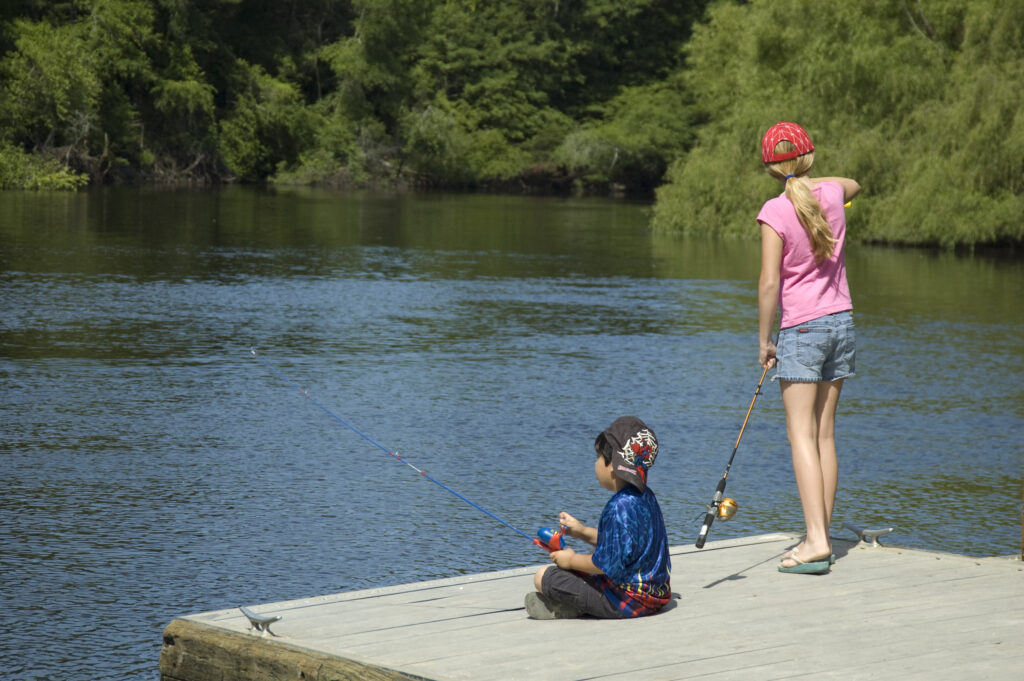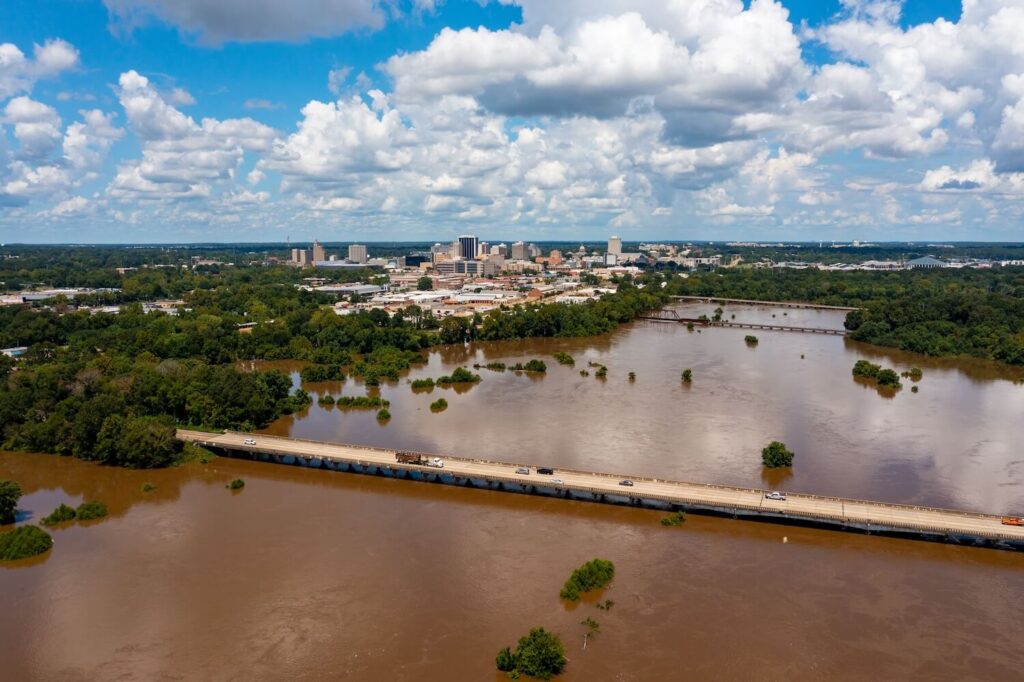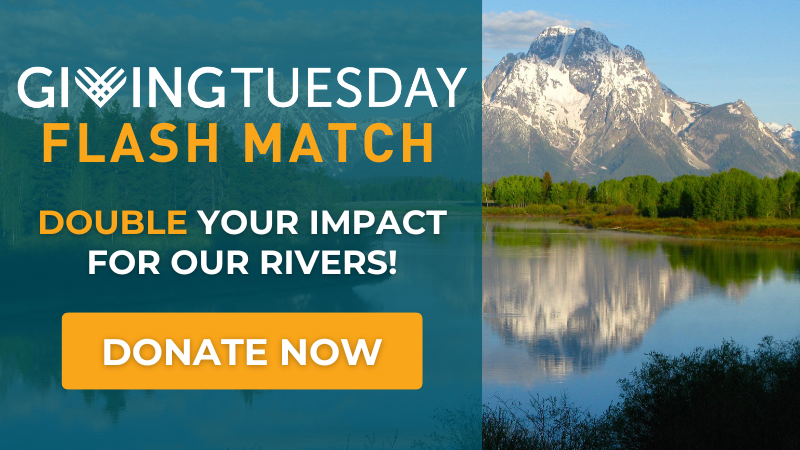Fighting for rivers means fighting for justice
“We cannot fight for the environment without also fighting for justice.”
Horrific. That’s the only word I can think of that comes close to describing the video of George Floyd’s murder by Minneapolis police officers. Floyd, who was handcuffed and on the ground, repeatedly cried out that he couldn’t breathe while a police officer kept his knee firmly planted on Floyd’s neck. By the time firefighters arrived, Floyd was dead. Watching the video made me sick to my stomach.
Floyd’s murder is just the latest outrage in a parade of racist horrors this spring. In Louisville, Kentucky, police serving a search warrant mistakenly broke into the apartment of Breonna Taylor, an emergency medical technician, and shot her to death. In Brunswick, Georgia, three neighborhood vigilantes followed and shot to death Amaud Arbery, who was out for a run. And in New York’s Central Park, Christian Cooper was birdwatching and asked a woman to leash her dog as park rules required. Instead, she put Cooper’s life in danger by calling the police, falsely claiming Cooper was threatening her life.
The common element in each of these cases? Floyd, Taylor, Arbery and Cooper were black and were victims of an American society in which being black carries a constant danger of being viewed with suspicion, arrested, or killed while engaging in ordinary activities that white Americans do every day without fear. Our country has a long history of marginalizing people based on the color of their skin and, as African Americans know better than anyone, that injustice continues today.
So what does this have to do with American Rivers and our mission of protecting and restoring rivers and conserving clean water? Rivers Connect Us is more than just a tagline — it is the conviction on which we base everything we do. It is why we seek to address and correct the underlying, systemic inequities around water that affect people and communities. To achieve this, we need everyone’s voices and energy, but that isn’t possible so long as people in our society are subject to inequity and injustice.
Marginalized communities are disproportionately impacted and more often experience limited access to clean, safe and affordable water. More than 2 million people in our country are living without running water, indoor plumbing or wastewater treatment. There are also 23,000 to 75,000 sanitary sewer overflows every year, releasing between 3-10 billion gallons of sewage daily into rivers and streams, causing illnesses and degrading local water bodies — disproportionally impacting communities of color in many states. Racial justice issues have everything to do with the mission of American Rivers.
We are seeing this play out as the COVID-19 pandemic transforms the world and the United States. Its impact has fallen disproportionately on communities of color and low-income communities. The Navajo reservation in Arizona, New Mexico, and Utah has had the highest per capita rate of infection in the country. And no wonder, given that large portions of the Navajo community do not have access to running water in their homes, a key defense against the spread of coronavirus. Rates of infection and deaths from coronavirus among African American and Latinx people are far higher than among whites and, not surprisingly, access to affordable clean water is harder to come by in marginalized communities.
So, fighting for safe, affordable water and healthy rivers is not just a good thing to do for the environment, it is also a matter of survival and every community’s ability to thrive. We cannot fight for the environment without also fighting for justice. That is why in our most recent strategic plan, American Rivers committed to enhancing diversity, equity, and inclusion in all that we do, from who we are as an organization to how we do our work across the nation. For many months now, our board and staff have been developing a plan to put this commitment into practice, to have a more diverse staff and board, engage in meaningful partnerships with communities of color and low-income communities, to model equity and inclusivity in all our work, and to hold ourselves accountable for this.
I’m not naïve enough to think that American Rivers will, on its own, achieve the justice our society needs. But I’m idealistic enough to know that, unless American Rivers does its part to fight for justice in all we do, we will continue to experience the horrors we have seen this spring and we will not achieve our mission. That outcome is unacceptable.





6 responses to “Fighting for rivers means fighting for justice”
Great job making the connection between environmental protection and social justice. For too long, America’s environmental movement has excluded communities of color and reflected the same colonial views of the polluters that got into the mess we are now it. Kudos to American Rivers for starting this much needed discussion!
Hello fellow River-Lover,
As I understand it, the mission has not changed. To take care of our rivers, we need people involved from all walks of life. Specific example from central Virginia where I live: A section of the James River was being trashed. A local restaurant / grocery owner went and talked to the people in their language, and put up signs in their language, both at the site and in his restaurant. He explained that our drinking water comes from near there, fish and otter live there, etc. Nowadays the area is much better. I think he was more effective than I would have been had I pulled up in my kayak and tried to communicate.
The man was an advocate for the river because he loves it. How do people come to love something? By having enjoyable experiences.
So, aside from the fact that I want all people to experience the well-being that the outdoors brings, if we can involve people from all walks of life in stewardship, our waterways will be better off. That’s how I see it. Best Regards……
Dear Friends at American Rivers-
Thank you so very much for your recent email “Rivers and Race….a Conversation We Need to Have”.
And the “Just Add Water” project looks great. Many thanks for your initiative!
You’re right: we need to discuss and ameliorate why there are not many people of Latin American, Asian American, Indigenous American, African American ancestry enjoying our great outdoors.
I have Euro-American ancestry. I love spending time outdoors…kayak, backpack, camp. It’s my salvation from the stresses of everyday life.
But some people are rightly scared to be outdoors. I can only imagine how awful it must be to fear for your life while recreating outdoors: jogging, at beach, walking, birding,etc . I would shy away from being outdoors.
Thank you so very much for this.
When did the Mission of this organization change?
Fighting for Rivers means better Lives for many minorities in our country.
Well put, Bob. Thank you. I will share our statement with you next week.